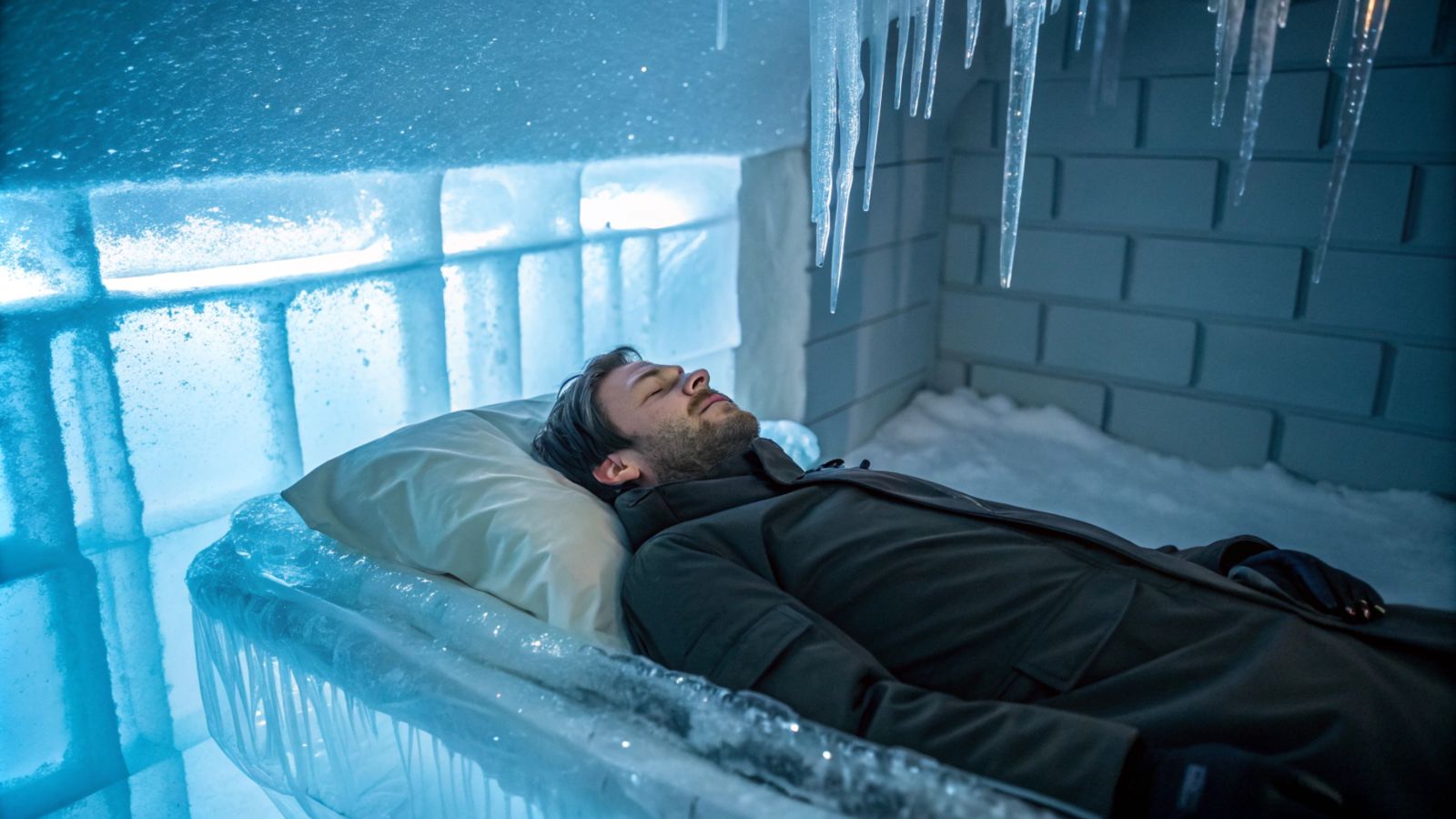The surprising impact of cold on our sleep ❄️
Published by Cédric,
Article author: Cédric DEPOND
Source: Cryobiology
Other Languages: FR, DE, ES, PT
Article author: Cédric DEPOND
Source: Cryobiology
Other Languages: FR, DE, ES, PT
Follow us on Google News (click on ☆)
Cryostimulation, a method that exposes the body to freezing temperatures for several minutes, has recently been studied for its effects on sleep quality. Researchers from the Universities of Poitiers and Montreal tested this approach on 20 healthy young adults. The goal? To observe how extreme cold influences the most restorative phases of sleep.

During the experiment, participants were exposed daily to -90°C (-130°F) for five minutes in specialized chambers. Protected by minimal clothing and accessories to prevent frostbite, they followed this protocol for five consecutive days. The results revealed significant changes in their sleep architecture.
Slow-wave sleep, a key phase for physical and mental regeneration, increased by an average of seven minutes per night after cryostimulation. This improvement is particularly intriguing as it occurs during the most critical sleep cycles for recovery.
Additionally, participants reported a perceived enhancement in sleep quality. Women, in particular, showed more pronounced improvements. Their anxiety levels also decreased, dropping from 43 to 38 points on average. These results highlight gender-specific responses, a relatively unexplored aspect of this field.
Olivier Dupuy, one of the researchers behind the study, emphasizes that these beneficial effects are not immediate. They require several successive exposures to cold, underscoring the importance of consistency to achieve tangible results.
While these observations apply to healthy individuals, researchers believe cryostimulation could be even more beneficial for people suffering from sleep disorders. Potential applications are also being considered in managing chronic inflammation, enhancing athletic recovery, or supporting individuals with mild dementia.
In certain countries like Poland, cryostimulation is already integrated into public healthcare systems. Although still emerging in other regions, this method opens up new perspectives in medicine and physiotherapy, according to the authors of the study published in Cryobiology.
Next steps include larger studies to explore long-term effects and gain a better understanding of the biological mechanisms involved. One thing is certain: cold, far from being merely an inconvenience, could become an unexpected ally for restorative sleep.